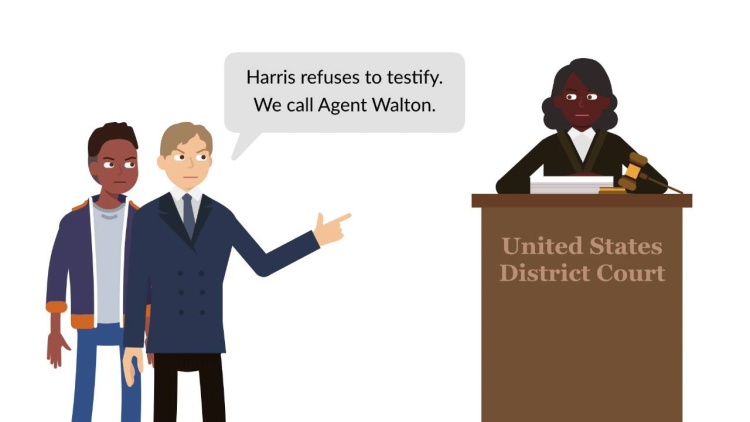Williamson v. United States
United States Supreme Court
512 U.S. 594 (1994)

- Written by Sean Carroll, JD
Facts
After being pulled over by law enforcement, Reginald Harris was arrested when cocaine was found in his rental car. While in custody, Harris admitted to transporting the cocaine for Fredel Williamson (defendant). Specifically, Harris told a Drug Enforcement Administration (DEA) agent that he was taking the cocaine to Atlanta for Williamson, who was traveling in front of Harris in another rental car at the time Harris was stopped. Harris indicated that he could not make a controlled delivery of the drugs to Williamson because Williamson had seen the police stop Harris and search his vehicle. Williamson was subsequently charged with cocaine-related offenses. At trial, Harris refused to testify against Williamson, but the judge allowed the DEA agent to testify about Harris's confession under the hearsay exception for statements against interest, because Harris had implicated himself in his statements and was unavailable to testify. Williamson was convicted on the cocaine charges, and the appellate court affirmed. The United States Supreme Court granted certiorari.
Rule of Law
Issue
Holding and Reasoning (O’Connor, J.)
Concurrence (Kennedy, J.)
Concurrence (Ginsburg, J.)
Concurrence (Scalia, J.)
What to do next…
Here's why 907,000 law students have relied on our case briefs:
- Written by law professors and practitioners, not other law students. 47,100 briefs, keyed to 996 casebooks. Top-notch customer support.
- The right amount of information, includes the facts, issues, rule of law, holding and reasoning, and any concurrences and dissents.
- Access in your classes, works on your mobile and tablet. Massive library of related video lessons and high quality multiple-choice questions.
- Easy to use, uniform format for every case brief. Written in plain English, not in legalese. Our briefs summarize and simplify; they don’t just repeat the court’s language.





